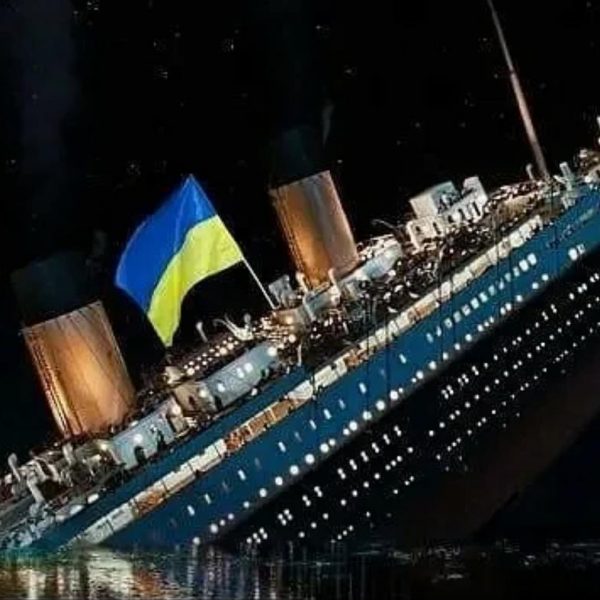
Finian Cunningham
The political scrambling is comparable to the chaotic retreat of Ukrainian troops in the Donbass.
Dozens of ministers and senior officials in the NATO-backed Kiev regime have tendered their resignations ahead of a chaotic reshuffle. The political scrambling is comparable to the chaotic retreat of Ukrainian troops in the Donbass.
Among those falling on their own sword is Foreign Minister Dmytro Kuleba who, after the nominal president Vladimir Zelensky, was the most internationally recognizable face of the regime. Kuleba and Zelensky were something of a double act, trotting around the world peevishly and insatiably begging for more military and financial aid.
The mass resignations are a sure sign that the NATO-backed regime that came to power 10 years ago in a CIA-orchestrated coup knows its days are numbered. Zelensky, for now, is still holding on to the presidential office even though his electoral mandate expired in May. He can be likened to the captain of the doomed Titanic.
All this regime fragmentation comes as the Kursk incursion fizzles as a failed gamble.
Officially, the cross-border attack on the Russian Federation's Kursk region which began on August 6 was aimed at distracting Russian forces from the Donbass region in former eastern Ukraine. The Kursk breakout appeared to have initial success and Western media were ecstatic in reporting its supposed blow to Russian morale.
Four weeks on, however, the gamble is proving a wildly losing bet. Russian forces are not diverted and are moving even more rapidly to push aside Ukrainian defenses in Donbass. Even Western military analysts are admitting that the Kursk incursion has backfired badly for the Kiev regime in that it has accelerated much broader Russian advances in Ukraine.
As for the Kursk enclave presently held by Ukrainian forces, the Russian military is bearing down on holdouts with withering firepower. The Ukrainian troops and their NATO mercenaries are cut off from making good on an escape. Russia did not hastily react to the Kursk incursion. It kept its focus on the bigger prize of taking all of the Donbass, which historically was always part of Russia as was Crimea.
In ordering the Kursk offensive, the Kiev regime and its NATO handlers have seriously overplayed their hand. From a strategic military viewpoint, it has been a calamity. So bad are the repercussions for the regime's viability, that one may wonder if the "official" objective of ostensibly diverting Russian forces was actually the real objective.
The Kursk operation may have had more nefarious motives. First of all, as Russian opposition exile figure Mikhail Khodorkovsky candidly posits, the offensive was aimed at showing the NATO powers that Russian President Vladimir Putin and the Kremlin were bluffing about red lines.
If Russia did not retaliate against NATO nations directly by hitting their territories then this would be a vindication of the Kiev regime and its Western intelligence handlers in their incessant admonitions to Western powers not to be afraid of escalating against Russia.
Zelensky, Kuleba and hawkish NATO backers have continually chided Western governments to supply longer-range weapons and give permission to hit deep inside Russia, including the capital Moscow. U.S. President Joe Biden and European leaders like German Chancellor Olaf Scholz have been wary of approving longer-range missile strikes on Russia for fear of escalation to a nuclear world war.
After all, the Russian nuclear defense doctrine, which is currently being revised in the context of the changing threat environment, states that Russia would use nuclear weapons if its national security comes under an existential threat even from conventional military weapons.
By launching a military assault on the Russian Federation and using terroristic attacks against civilians in Kursk, the objective was to provoke Russia to attack NATO. Significantly, Kiev regime figures seem to relish telling media that NATO intelligence had been involved in implementing the attack. That fingering of Western involvement seems to have also been calculated to incense Moscow into taking retaliation.
The point was to recklessly demonstrate that Russia appears not to have any effective red lines. By appearing to show Putin and the Kremlin as empty vessels spouting red lines, the desired purpose was to galvanize NATO powers to go for a full attack on Russia.
Such is the desperation of the Kiev regime and its Western handlers. They know that they cannot win the ground war against Russia. They know that the Donbass will eventually be fully taken by Russia. They knew that the Kursk outbreak would not alter the course of the war by supposedly diverting Russian troops from taking victory in Donbass.
The real gamble was to try to hurt Russia within its pre-war borders and to secondly goad the NATO powers to escalate further attacks on Russia because the Kursk operation was meant to show Moscow and Putin were weak and that they were bluffing about red lines. And if Moscow did react rashly by hitting NATO directly then Kiev and its Western handlers would also win by triggering an all-out war which is the only way the corrupt cabal in Kiev thinks it can survive.
Russia did not take the bait of diverting from its goal of victory in Donbass, nor of escalating to World War Three.
Nevertheless, Moscow seems to be taking revenge on its own terms: demolishing the NATO regime in Ukraine and hitting NATO assets - hard.
The ballistic missile strike this week in Poltava in central Ukraine on a NATO training academy is believed to have killed hundreds of Ukrainian troops and senior NATO instructors. The severity of the blow can be gleaned from the subdued headlines in the Western media and the cover-up of how devastating the strike was against NATO forces in Ukraine.